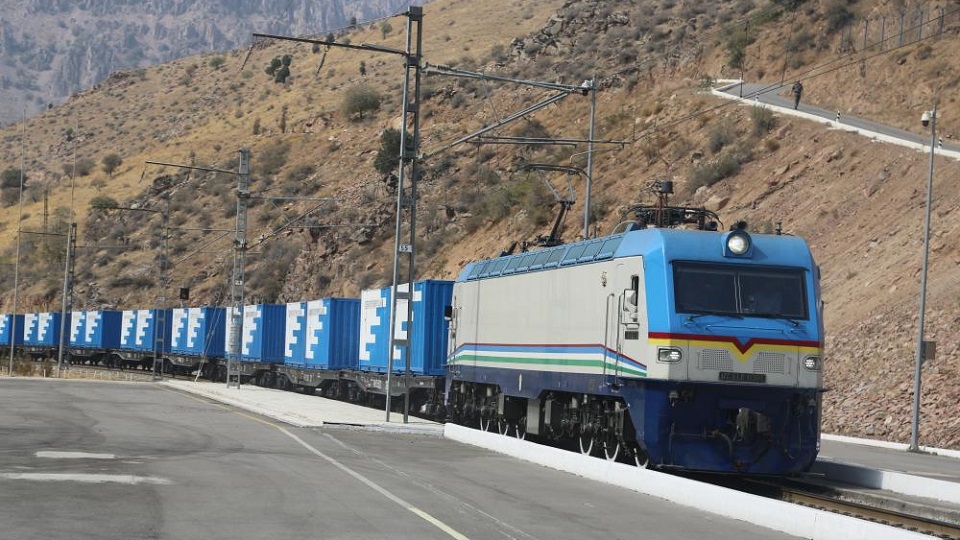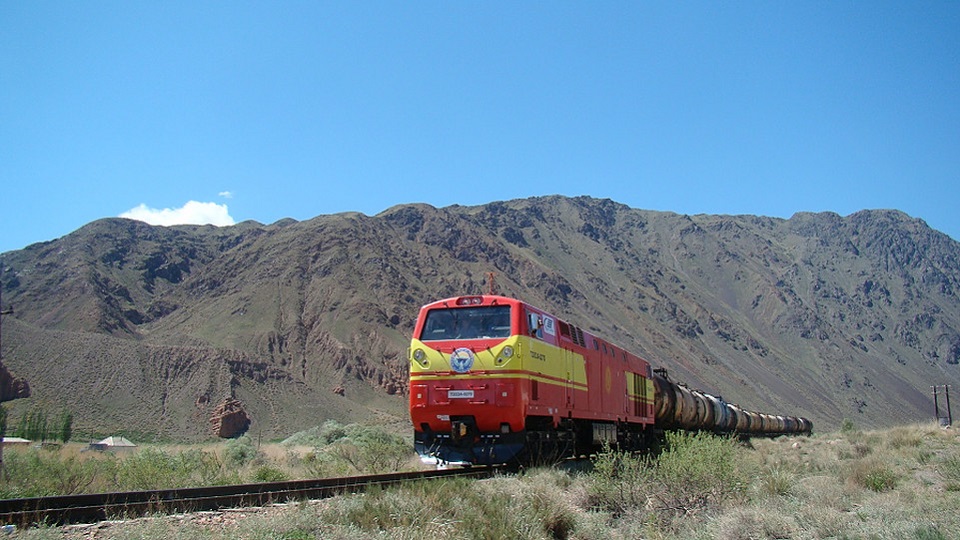Caucasian states a transit hub for freight from Central Asia

For Kazakhstan, the Caucasian states have already become an important region in terms of transport. It operates the seaport facilities in Georgia, engages the region into its multimodal logistics solutions such as the Middle Corridor or uses the local transport arteries including the Baku – Tbilisi – Kars railway to export its freight to third countries. Now, the other Central Asian countries, Uzbekistan and Kyrgyzstan, are focusing more on the Caucasian region.
The geographical position of the landlocked Central Asian countries forces them to establish new logistics solutions for transporting their export products. In this regard, Kazakhstan has already made significant progress. It has a wide network of container trains to China, to Europe via Russia or via the Middle Corridor that crosses the Caucasian Region. The latter received a new stimulus last year with the opening of the rail freight traffic through the Marmaray Tunnel in the Turkish city of Istanbul. Now it is the turn of other Central Asian countries to use the transport opportunities of the Caucasian Region.
Precious metals from Uzbekistan
Among the latest developments is the new container train service launched from Uzbekistan to Turkey. Late March, the first shipment departed from Sirghali station in Tashkent, the capital of Uzbekistan. It consisted of 90 20-foot containers loaded with products of the Almalyk Mining and Metallurgical Plant, the largest producer of precious metals in Uzbekistan, especially gold and silver. The exact types of freight have not been reported.
The route of the new train ran via Turkmenistan, Azerbaijan and Georgia. To deliver freight to the final destination, it used the Türkmenbaşy – Alat ferry link across the Caspian Sea and the Baku – Tbilisi – Kars railway. This container train was arranged by O’zbektemiryo’lekspeditsia and O’ztemiryo’lkonteyner, the subsidiaries of Uzbekistan Railways (Oʻzbekiston Temir Yoʻllari). In the future, they plan to make the service weekly and to launch similar connections to Russia, the EU, China and other Asian countries.
Text continues below the picture

Fuel oil from Kyrgyzstan
Another example of progress in establishing the rail freight connections from Central Asia to the Caucasian Region is Kyrgyzstan. This country has already organised a stable rail service to export fuel oil produced by Kyrgyzneftegaz, the local oil and gas mining company, to the Georgian port city of Batumi. Late January 2020, the pilot train with 49 tank wagons filled with fuel oil departed from Kara-Suu station, which is located close to the border with Uzbekistan. After a 33-hour trip, the tank wagons were delivered to Batumi.
On its way to Georgia, the train crossed Uzbekistan, Turkmenistan and Azerbaijan. To travel across the Caspian Sea, the Türkmenbaşy – Alat ferry service was used. Afterwards, Kyrgyz Railways (Kyrgyz Temir Zholy) together with partners from other countries performed several shipments from Kara-Suu to Batumi.
Read also:




